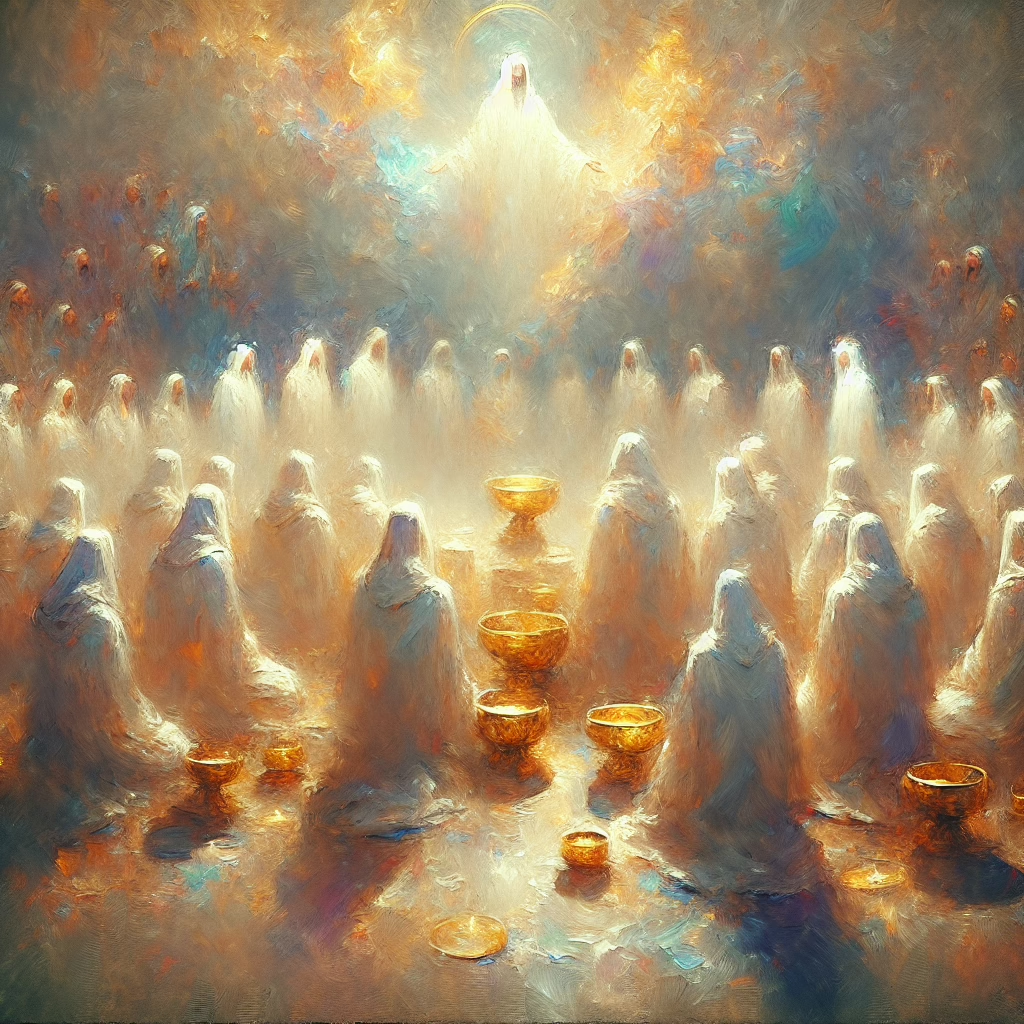The Intercession of Saints: Catholic Practice vs. Protestant Rejection
Introduction: Understanding the Divide
The Catholic practice of invoking saints for intercession frequently sparks theological debate, illuminating a significant point of contention between Catholic and Protestant beliefs. While Catholics embrace the idea that saints can intercede on their behalf, many Protestants firmly reject this notion, emphasizing direct communion with God through Jesus Christ alone. This divergence stems from fundamentally different interpretations of Scripture and theological principles. In this post, we will explore prominent objections to the Catholic practice of the intercession of saints and present cogent Catholic responses, with the aim of shedding light on this crucial divide.
1. Objection: Christ Alone as Mediator
1.1 The Protestant Concern
Protestants often refer to 1 Timothy 2:5, which states, "For there is one God and one mediator between God and mankind, the man Christ Jesus." This verse is frequently used to argue that seeking the intercession of saints undermines Christ’s unique mediating role. The concern is that resorting to saints as intermediaries might be seen as bypassing the direct access believers have to God through Christ.
1.2 Catholic Response: Role of Saints in Communion
Catholics maintain a clear distinction between Jesus’ unique mediatorship and the intercessory role of saints. Christ is indeed the sole mediator of redemption, but this does not preclude the saints from interceding for us in a manner akin to offering prayer requests within a community of believers. The Book of Revelation provides a scriptural foundation for this understanding: Revelation 5:8 describes saints holding golden bowls full of incense, which are the prayers of the faithful ascending to God. Likewise, Revelation 8:3-4 portrays an angel offering the prayers of the saints before God, underscoring their participatory role.
In this light, the saints are seen not as replacements for Christ but as our fellow members in the heavenly communion, reflecting the unity of the Body of Christ. Their intercession is a natural extension of their earthly lives as models of holiness.
1.3 Supporting Evidence
Early Church Fathers consistently affirmed the intercessory power of the saints. St. Cyril of Jerusalem, in his Catechetical Lectures, urged believers to pray for the intercession of martyrs:
“Then, we commemorate also those who have fallen asleep before us…that at their prayers and intercessions God would receive our petition.”
Furthermore, the concept of a supportive "cloud of witnesses" is biblically founded in Hebrews 12:1, illustrating an interconnected community urging believers onward.
Link: Communion of Saints for further insights into the Catholic teaching on the communion of saints.
2. Objection: Idolatry and the Role of Saints
2.1 The Protestant Allegation
A significant objection revolves around the claim that venerating saints equates to idolatry, diverting focus from Christ. Critics argue that such practices might inadvertently elevate saints to divine status, conflicting with the priesthood of all believers, which prioritizes direct communication with God.
2.2 Catholic Response: Veneration vs. Idolatry
Catholic teaching draws a clear distinction between the veneration of saints (dulia) and the worship due to God alone (latria). Veneration honors the saints as exalted models whose lives encourage believers to grow in holiness. This is not a competition for God’s place but a manifestation of the communal and interdependent nature of salvation. Moreover, the saints' intercessory powers further cement the Church’s communal salvation aspect, where the faithful on Earth and those in heaven collaborate through prayer.
2.3 Supporting Evidence
The Catechism of the Catholic Church reinforces this distinction. Paragraph 957 articulates the saints' role in intercession and their enduring connection to believers, emphasizing that veneration respects God's supremacy.
Historical records show early Christians engaging in prayers for intercessions, demonstrating continuity in tradition. For example, St. Augustine, in his writings, openly prayed to the saints, seeking their aid.
Conclusion: Embracing the Communion of Saints
In summary, while Protestant objections stem from a genuine concern for Christ’s sole mediating role and avoiding idolatry, the Catholic responses demonstrate that saints' intercession complements rather than contradicts Christ’s unique position. This practice highlights a rich tapestry of unity within the Body of Christ, encouraging believers to rely on communal support.
For those intrigued by the role of saints in Catholic theology, a deeper reflection on the communion of saints invites a richer faith experience. Engage further by exploring Church teachings and joining discussions on this mystical interconnectedness.
Link: Catholic Saints to discover more about the lives and intercessory roles of saints.
This exploration should prompt a deeper appreciation of the rich tradition that emphasizes interdependence within the faith, inviting the faithful to a fuller communion with the Church triumphant in heaven.






Leave a Reply